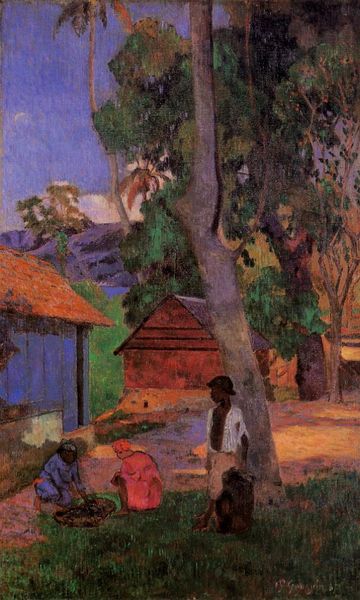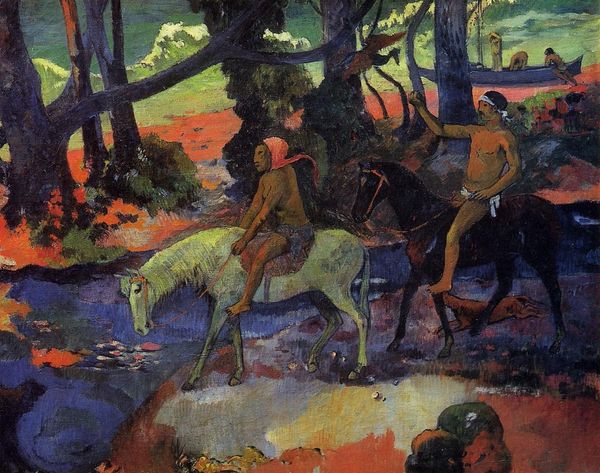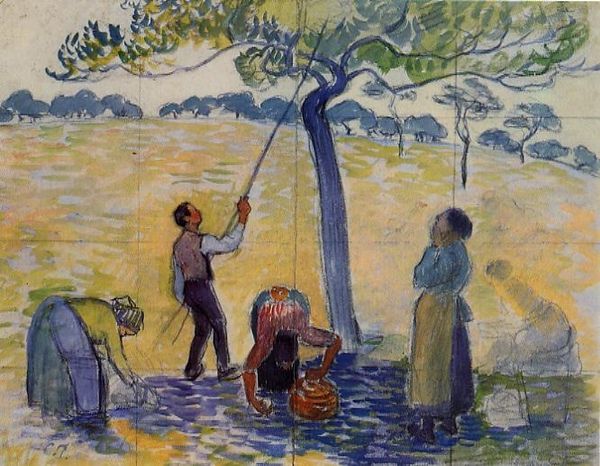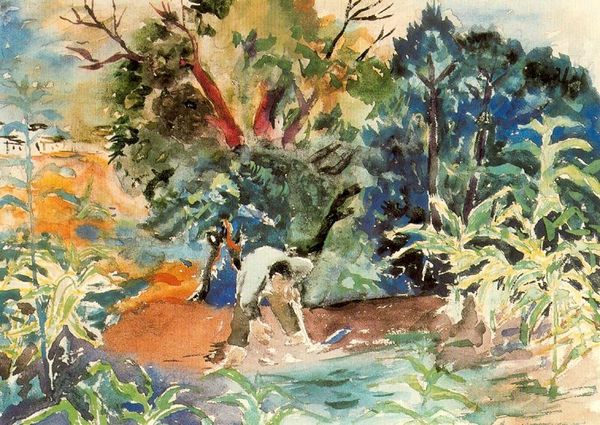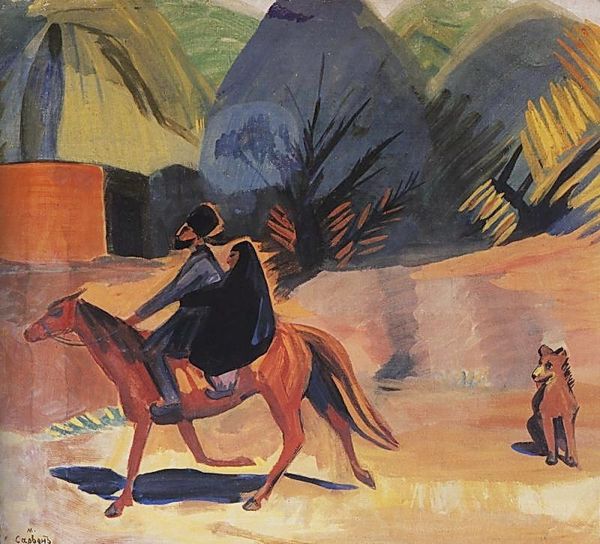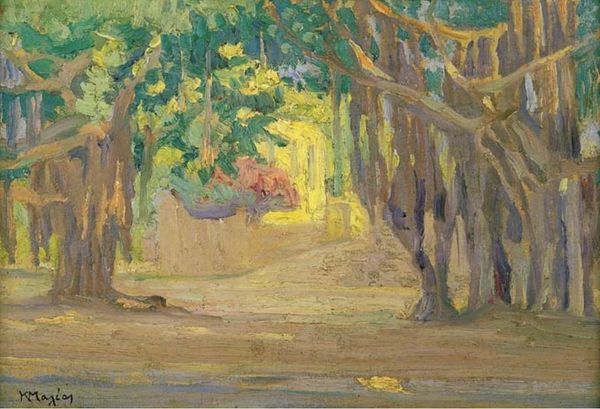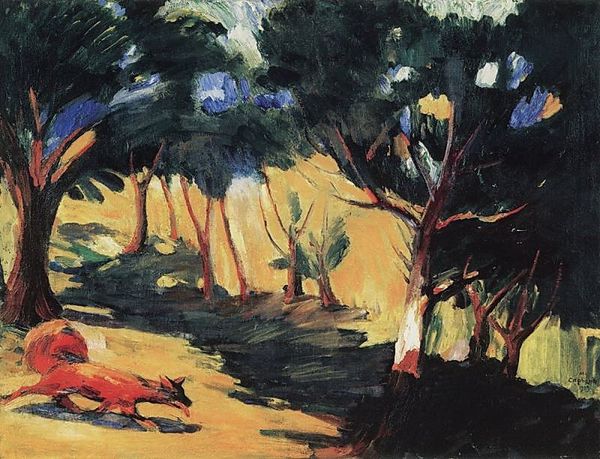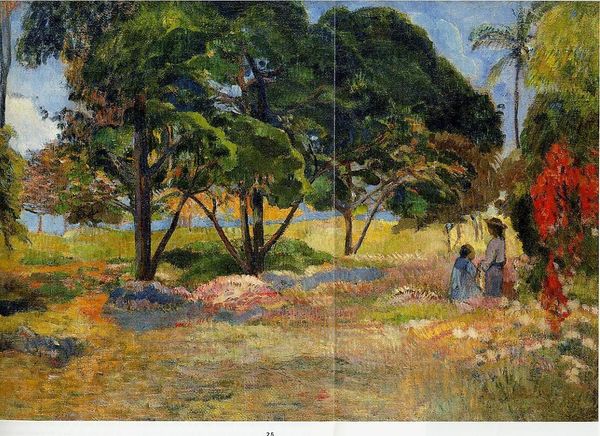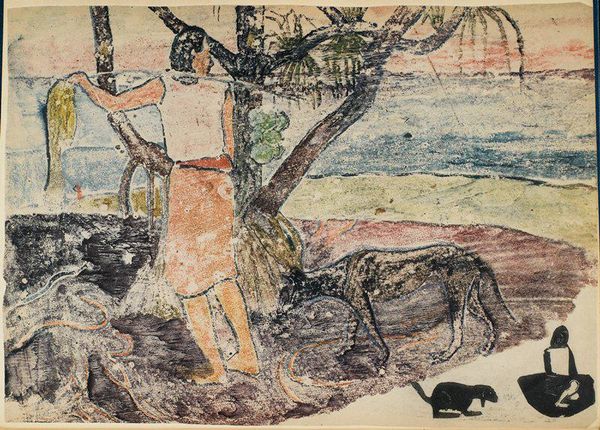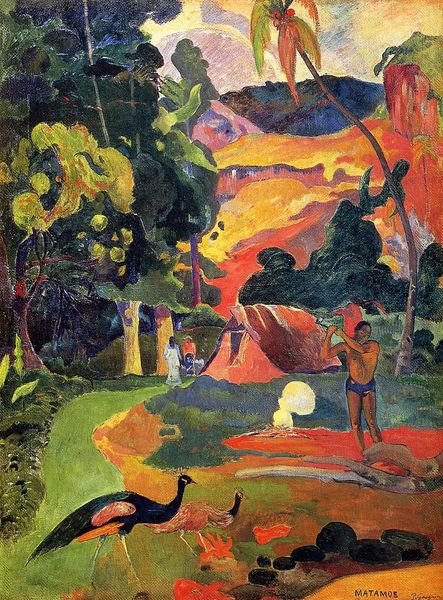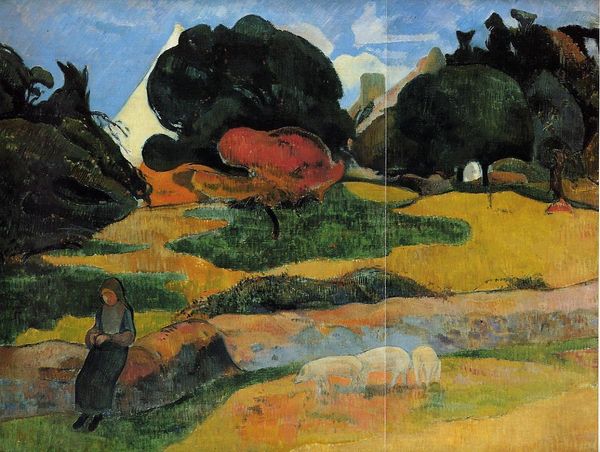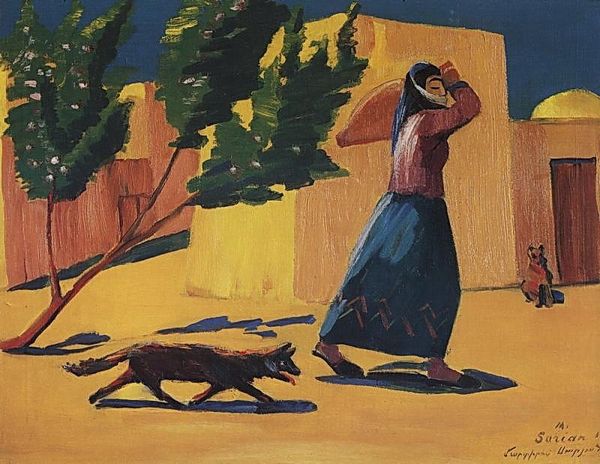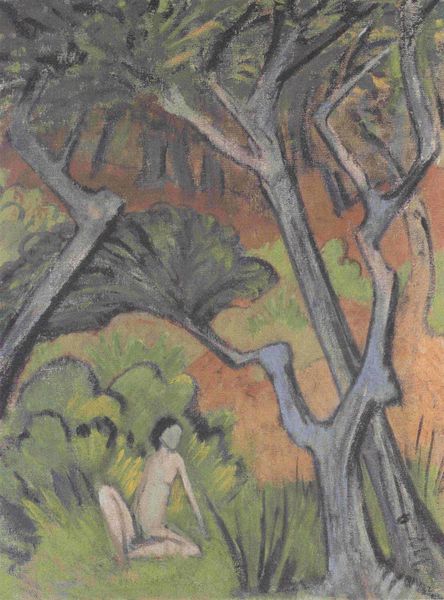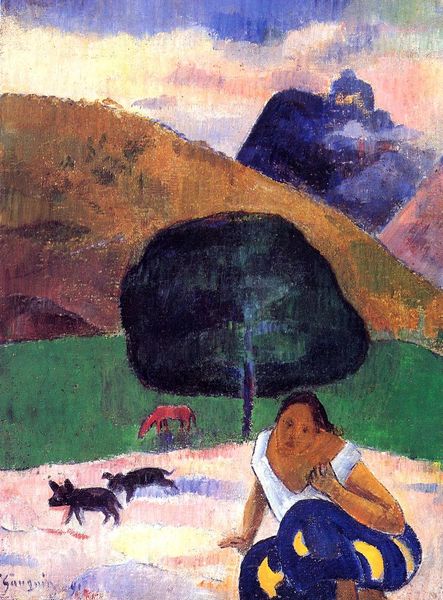
oil-paint
#
portrait
#
oil-paint
#
landscape
#
figuration
#
oil painting
#
horse
#
genre-painting
#
post-impressionism
Copyright: Public domain
Paul Gauguin painted "The Lemon Picker" during one of his stays in Tahiti in the 1890s. It depicts a Tahitian woman using a long stick to harvest lemons from a tree, with a horse and chicken nearby. The image is a potent one. Gauguin sought an escape from the industrialization of Europe and a return to a simpler, more authentic way of life. Tahiti, for him, represented that escape. But what does it mean for a Western artist to represent another culture? Gauguin's vision of Tahiti was romanticized, filtered through his own cultural lens. The flattened perspective, bold colors, and simplified forms reflect Gauguin's interest in non-Western art. The woman's traditional clothing and the lush tropical landscape contribute to the exoticism of the scene. It is important to note the institutional history of colonialism in the pacific. The way Tahiti and its people were represented served certain political and economic interests. To fully understand this painting, we have to research the colonial history of Tahiti, Gauguin's personal history, and the art market of the time.
Comments
No comments
Be the first to comment and join the conversation on the ultimate creative platform.
